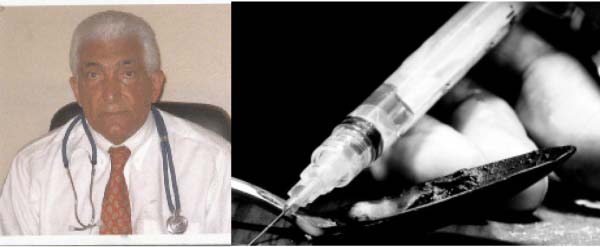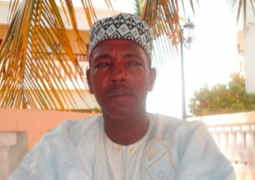
In 1987, the UN General Assembly decided to observe the 26th of June as the International Day against Drug Abuse and Illicit Trafficking. As an expression of its determination to strengthen action and cooperation to achieve the goal of an international society free of drug abuse.
In the words of Kofi Annan, UN Secretary-General, “Illicit drugs destroy innumerable individual lives and undermine our societies. Confronting the illicit trade in drugs and its effects remains a major challenge for the international community.”
The United Nations Office on Drugs and Crime (UNODC) leads the international campaign aimed at raising awareness of the major problem that illicit drugs represent to society and especially to young people.
The goal is to inspire people and mobilize support for drug control. The international campaign “Do drugs control your life? Your life, Your community, No place for drugs communicates that the destructive effects of illicit drugs concern us all.
Their use harms individuals, families and society at large. Drugs control the body and mind of individual consumers. The drug crop and drug cartels control farmers, trafficking and crime control communities.
Teenagers and young adults are particularly vulnerable to using illicit drugs. The prevalence of drug use among young people is more than twice as high as that among the general population.
At this age, peer pressure to experiment with illicit drugs can be strong and self-esteem is often low.
This year’s International Day against Drug Abuse and Illicit Trafficking is an opportunity to highlight the importance of addressing these twin threats through the rule of law and the provision of health services. Our commemoration coincides with the 50th anniversary of the 1961 Single Convention on Narcotic Drugs.
This Convention and the other major international drug control treaties do more than help us in the fight against drug trafficking; they protect vulnerable people through a wide range of activities to which States parties commit themselves, including education and prevention, treatment of drug dependence, care and rehabilitation for drug users, and social support.
Dr Hassan Azadeh, our health adviser, a senior lecturer at the UTG and a senior medical consultant and Miss Samba Bah, the President of the “BAWRIGAL” a very active “Gambian Youth Origination against Drug abuse in the Gambia” and Mr Lamin Hassan, an ex-drug addict, now completely clean from drugs and now activist against any use of drugs, will this week focus on this year’s UN message against drugs to the public of the Gambia.
Principles of drug addiction treatment:
Addiction is a complex but treatable disease that affects brain function and behaviour.Drugs abuse alters the brain’s structure and function, resulting in changes that persist long after drug use has ceased. This may explain why drug abusers are at risk for relapse even after long periods of abstinence and despite the potentially devastating consequences.
1. No single treatment is appropriate for everyone.Treatment varies depending on the type of drug and the characteristics of the patients. Matching treatment settings, interventions, and services to an individual’s particular problems and needs is critical to his or her ultimate success in returning to productive functioning in the family, workplace, and society.
2. Treatment needs to be readily available.Because drug-addicted individuals may be uncertain about entering treatment, taking advantage of available services the moment people are ready for treatment is critical. Potential patients can be lost if treatment is not immediately available or readily accessible. As with other chronic diseases, the earlier treatment is offered in the disease process, the greater the likelihood of positive outcomes.
3. Effective treatment attends to multiple needs of the individual, not just his or her drug abuse.To be effective, treatment must address the individual’s drug abuse and any associated medical, psychological, social, vocational, and legal problems. It is also important that treatment be appropriate to the individual’s age, gender, ethnicity, and culture.
4. Remaining in treatment for an adequate period of time is critical.The appropriate duration for an individual depends on the type and degree of the patient’s problems and needs. Research indicates that most addicted individuals need at least 3 months in treatment to significantly reduce or stop their drug use and that the best outcomes occur with longer durations of treatment. Recovery from drug addiction is a long-term process and frequently requires multiple episodes of treatment. As with other chronic illnesses, relapses to drug abuse can occur and should signal a need for treatment to be reinstated or adjusted. Because individuals often leave treatment prematurely, programs should include strategies to engage and keep patients in treatment.
5. Behavioral therapies including individual, family, or group counseling are the most commonly used forms of drug abuse treatment.Behavioral therapies vary in their focus and may involve addressing a patient’s motivation to change, providing incentives for abstinence, building skills to resist drug use, replacing drug-using activities with constructive and rewarding activities, improving problem-solving skills, and facilitating better interpersonal relationships. Also, participation in group therapy and other peer support programs during and following treatment can help maintain abstinence.
6. Medications are an important element of treatment for many patients, especially when combined with counselling and other behavioural therapy. An individual’s treatment and services plan must be assessed continually and modified as necessary to ensure that it meets his or her changing needs.A patient may require varying combinations of services and treatment components during the course of treatment and recovery. In addition to counseling or psychotherapy, a patient may require medication, medical services, family therapy, parenting instruction, vocational rehabilitation, and/or social and legal services. For many patients, a continuing care approach provides the best results, with the treatment intensity varying according to a person’s changing needs.
7. Many drug-addicted individuals also have other mental disorders.Because drug abuse and addiction both of which are mental disorders often co-occur with other mental illnesses, patients presenting with one condition should be assessed for the other(s). And when these problems co-occur, treatment should address both (or all), including the use of medications as appropriate.
8. Medically assisted detoxification is only the first stage of addiction treatment and by itself does little to change long-term drug abuse.Although medically assisted detoxification can safely manage the acute physical symptoms of withdrawal and can, for some, pave the way for effective long-term addiction treatment, detoxification alone is rarely sufficient to help addicted individuals achieve long-term abstinence. Thus, patients should be encouraged to continue drug treatment following detoxification. Motivational enhancement and incentive strategies, begun at initial patient intake, can improve treatment engagement.
9. Treatment does not need to be voluntary to be effective.Sanctions or enticements from family, employment settings, and/or the criminal justice system can significantly increase treatment entry, retention rates, and the ultimate success of drug treatment interventions.
10. Drug use during treatment must be monitored continuously, as lapses during treatment do occur.Knowing their drug use is being monitored can be a powerful incentive for patients and can help them withstand urges to use drugs. Monitoring also provides an early indication of a return to drug use, signalling a possible need to adjust an individual’s treatment plan to better meet his or her needs.
11. Treatment programs should test patients for the presence of HIV/AIDS, hepatitis B and C, tuberculosis, and other infectious diseases as well as provide targeted risk-reduction counseling, linking patients to treatment if necessary. Typically, drug abuse treatment addresses some of the drug-related behaviors that put people at risk of infectious diseases. Targeted counseling focused on reducing infectious disease risk can help patients further reduce or avoid substance-related and other high-risk behaviors. Counseling can also help those who are already infected to manage their illness. Moreover, engaging in substance abuse treatment can facilitate adherence to other medical treatments.
Here are just a few ways your community can get involved:
- Launch a campaign to educate the community about the harmful effects of drug abuse using materials.
- Support or sponsor meetings in town halls, congregation places, sport centres’ and other communal places to raise awareness of the harmful effects of drug use and abuse and to promote healthy lifestyles
- Work with local media outlets to spread messages and distribute information
For further information on medical help and support, email confidentially on azadehhassan@yahoo.co.uk or text on
002207774469 / 3774469 or call on AFRI RADIO, a live health show presented by Dr Azadeh every Wednesday morning from 9 to 9.30 am.




